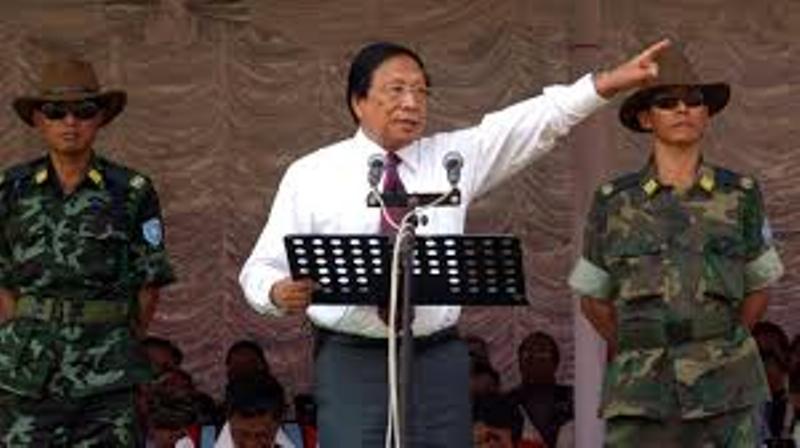Kohima: The Centre and the National Socialist Council of Nagaland-Isak-Muivah (NSCN-IM) are likely to resume formal talks soon on the protracted Naga political issue.
Officials from the Ministry of Home Affairs (MHA), including Advisor for the North East, A.K. Mishra, met with NSCN-IM leaders, including General Secretary and chief negotiator Thuingaleng Muivah, in Nagaland‘s Dimapur on Friday to discuss the matter.
“Two other senior leaders of the NSCN-IM attended the meeting. Both sides decided to hold formal talks at the earliest to take forward the long-pending Naga political issue,” an official said on condition of anonymity.
Mishra, who arrived in Nagaland on Thursday, held a meeting with the Working Committee of the Naga National Political Groups (NNPGs), an alliance of seven Naga groups that signed an “Agreed Position” with the government in 2017, in Dimapur.
The last formal meeting between the government and the NSCN-IM took place in October 2022.
During the 46th Raising Day celebration of the NSCN-IM at its headquarters, Hebron, Vice Chairman Tongmeth Wangnao recalled that the Indian government had officially recognized the rights of the Nagas on two historic occasions.
He stated that the first recognition of the uniqueness of Naga history occurred on July 11, 2002, during a meeting in Amsterdam, followed by the Framework Agreement signed on August 3, 2015, in New Delhi, with Prime Minister Narendra Modi playing a key role in the agreement.
The NSCN-IM has been engaged in negotiations with the government since the 1997 ceasefire agreement and the 2015 Framework Agreement.
Parallel negotiations with the NNPGs began in 2017, leading to the signing of the Agreed Position in November that year.
ALSO READ: Nagaland government halts transfer, posting of 1,650 teachers amid opposition
Despite ongoing discussions, the NSCN-IM remains firm on its demand for a separate flag and constitution for the Nagas, as well as the integration of Naga-inhabited areas.
The Naga areas are spread across the northeastern Indian states of Arunachal Pradesh, Assam, Manipur, and Nagaland, and western Myanmar.















